This post is largely a lot of free flowing ideas trying to decide why this series became such a compelling force in the literary world recently. Read as much or as little as you like, but definitely feel free to chime in with your own ideas as to what makes The Hunger Games unique and fresh...or feel free to take the contrary position and tell me why you didn't like the book/series.
(Note: Images contained within are not my creation and are linked back to the site on which I found them...click through the image for 'original' source. If you are the artist/owner of any of these, and want me to remove them, just let me know)

I'll keep my thoughts generally spoiler free, but if you're completely unfamiliar with the overall Hunger Games story arc, there will certainly be some things that are spoilers to you.
***Hunger Games Series Mini-Spoilers***
To try and cover all the possible spoilers at once, here's a very quick overview of the world of The Hunger Games.
In the Hunger Games saga, readers are presented a country many years in the future situated where the United States is now. After all sorts of political/social/environmental/etc unrest/upheaval, we have arrived in a situation where a strong, centralized government exists in The Capitol led by a "President" who rules as more of a dictator. Thirteen districts surround the Capitol and provide goods and services but live as little more than slaves.
To "keep peace" (and remind citizens/slaves of the power of the Capitol over them), an annual "Hunger Games" is staged….much like the Roman Gladiator games of old, participants are put into an arena with various supplies and weapons and commanded to fight to the death while sadistic onlookers cheer/bet/swoon over their favorites. In Book 1, Katniss Everdeen enters the arena and fights for her survival. Since the saga continues, it's probably not a huge spoiler to tell you that she survives into books 2 and 3 and becomes something of a hero to the society which is disintegrating/revolting around her.
***End of Hunger Games Spoilers***
OK, so…what's with all the hype/fandom about the Hunger Games trilogy? To me, there were two things that really made this series for me. #1, the characters. #2, the social commentary.
Characters
By the time we arrive at Mockingjay, we've really gotten to know the main characters Katniss, Peeta and Haymitch. There's also a wide range of vivid secondary characters (Gale, Cinna, President Snow, Prim, etc) who take on a larger role in this final book. A number of tributes and other secondary characters from previous books also come to the forefront to help wrap up this trilogy.
I have a hard time saying this series is character driven because truly the environment and the action really drives the story. Truly much of the story is driven by vibrant world of Panem, the stark apathy of many citizens (especially in the Capitol), the strange technology, and the driving action of the Hunger Games and the desire for revolution.
However, all of those elements would only be vaguely interesting in a "summer movie blockbuster" sort of way if it weren't for the intriguing characters.
The three most interesting characters to me were Katniss (naturally), Haymitch and President Snow.
Katniss is a very interesting protagonist since she is often very conflicted, uninformed, reluctant and changing in her opinions (mainly because she's never quite sure what she wants). She's very passionate about saving her family and friends. She has a strong sense of revenge and hatred towards the Capitol in general and President Snow in particular. But her emotions are often tainted and confused by the emotions and logic of others. She doubts the many truths explained to her by others, especially as she sees contradictions from others. She has the strength and courage to question what is right and what is wrong, but has a hard time turning those questions into answers…until presented with a strong need to make a choice, in which case her choices are almost snap judgments she worries she may regret later. In the end, she's left unsure of many things. Which I think adds to her approachability…she's real…and can't always find the real answers to the hard questions.
Haymitch is a crotchety old tribute with a lot of cynical/bitter angst against the Capitol. The author did a great job of making it difficult to fully love Haymitch. He's gruff, rude, deceitful, usually drunk and unapproachable. And yet in spite of his off-putting nature and frequent drunkenness or hangovers, he seems to be the character with the clearest vision of what is true and what is needed. He's willing to make the hard decisions and doesn't often explain his reasons or motivations. But when we dig deeper into them and see him for what he is, it seems to me that Haymitch is Katniss's strongest ally and truest friend and that he's the one who best understands her.
President Snow makes somewhat token appearances in the first book but it's evident even then that he is just a creepy, vile character. Through the second book, he becomes even more repulsive. By the third book, I felt dark and ill whenever he was in a scene. The author created an amazing villain who could be attractive and compelling on one hand (when addressing the nation) but absolutely abhorrent and just plain gross when you pulled back the covers and looked at his true nature. And yet (***minor spoiler***) near the end of Mockingjay, there comes a question whether he is the absolute evil…whether he is the 'head of the dragon' so to speak…whether by 'cutting off the head' of the Capitol, you can truly eliminate the noxious evil he seems to lead.***End minor spoiler***
What about Gale, Peeta, and the romance???
Over the summer, there were a lot of posts about Team Peeta or Team Gale or whatever…focusing on the potential romantic elements of the book. During the first novel, the romantic element was a key question to the story but it didn't drive the story. This is definitely NOT a teen romance novel. However, the questions asked in Book 1 (and continued through the end of the trilogy) lend to questions about the nature of relationships….what compels relationships to form…how are people drawn together…why are some relationships successful and some doomed to fail? Katniss starts out the trilogy with no romantic inklings at all. In recent years, she's been drawn towards Gale but largely as a best friend and as a companion and protector for her and her family. She makes it perfectly clear she has no intention of ever falling in love, getting married, or bringing any children into this horrible world. Naturally, this leads to emotional inner conflict as she tries to reconcile her devotion, loyalty and even love for her friend with the growing possibility of romantic love. The romantic element became more pronounced in the final book and did eventually reach a conclusion. I felt like it was well played. I think both of the boys were well constructed characters. And I think the romantic side plot was effective not only just to add that element but also to let the readers think about relationships. It was refreshing to see the conflict rather than to see her arbitrarily "hook up" with either boy for the sake of a relationship (which is something far too common not only in books, but also in reality).
Social Commentary
So the conversation about the romance (above) leads me to the second point I really liked about the book and the one that I really felt made it stand out as more than a simple action-adventure.
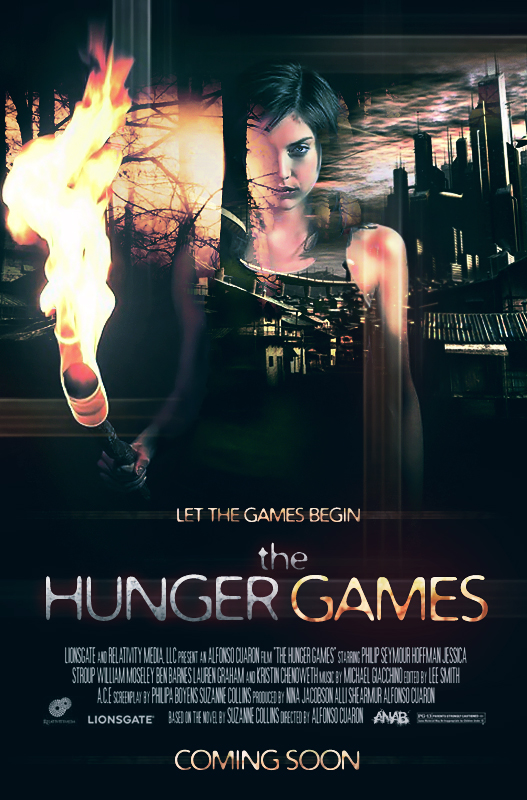 Collins did a fabulous job of creating a terrifying world with so many different layers….from class, to age, to education, to technology/agriculture, and on and on. There are so many different groups presented at conflict with each other and in many cases, neither faction is any more right or wrong than the other. And yet, a stark inequality exists in each of these cases.
Collins did a fabulous job of creating a terrifying world with so many different layers….from class, to age, to education, to technology/agriculture, and on and on. There are so many different groups presented at conflict with each other and in many cases, neither faction is any more right or wrong than the other. And yet, a stark inequality exists in each of these cases.The most stark distinction is between the citizens in the Capitol and the "citizens" in the districts….the distinction continues to break down even further from one district to another and then gets even more granular within the individual districts. Collins creates an amazing hierarchy from President Snow and his most loyal/intimate cronies all the way down the most wretched slave in the poorest district. In most cases, a sort of continuum exists from the "top" (Snow) to the "bottom" (wretch), but as Katniss spends time in the Capitol and each of the districts, it becomes evident that there is plenty of grey area at each level.
As Mockingjay progresses, the lines get blurred. We're faced with the stark reality that you can never tell good or evil just by looking at where a person lives, what they wear, how they talk, etc…it's just as easy for the lowliest slave in District 12 to become a hateful person as it is for a celebrated citizen of the Capitol to be compassionate and honest.
We're meant to re-examine the stereotypes we often accept blindly.
Beyond the general commentary on not making snap judgments, it seems that Collins is also commenting on the nature of society as a whole…through the use of the Hunger Games.
The Hunger Games are a horrific event…sending off young kids to fight to the death….yikes. And yet, it's based in reality (or at least history) with regards to the gladiators of Rome….and stories in ancient mythology of sacrifices sent to appease the kings/emperors/gods/whatever.
Bringing it into the modern day….I see parallels in Reality Television and in the parental pushing of their children to "become something."
The first one (reality TV) will be easier to explain, so let me first address the second.
Over the years, I've known people, and seen reports on the news of others, who push their kids to become something the parent wants the kid to become….a model, an actor, a sports star, a scientist, a doctor, a lawyer. Now, don't get me wrong, it's great for parents to encourage their kids and to push them to succeed. But there are cases where this can go too far and become a disaster…or worse, can destroy the child. Many times, children may actually want the same thing their parent is pushing for. Other times, the child is acting just to help appease the parent and feel some form of affection or love. In the extremes, we end up with situations where a child can become overly sensitive, depressed, even suicidal. The kids can also grow up far too fast without knowing what it's like to really be a kid….losing some of that sense of wonder, of adventure, of passion for life. The child lives only to fulfill the single goal…to appease the parent….to be perfect.
I don't want to go into a lot of depth on this one…and I know the discussion here can be sometimes controversial. But in terms of its relation to the Hunger Games, I see a couple of parallels. The main one is in terms of the "career tributes" who are trained up from birth to try and win the Games. To me, that's just sick…training up your kid to go fight to the death and (hopefully) win by killing a couple dozen other kids. The other parallels I see are more theoristic and I'm still working through them.
As to the Reality TV aspect, I think this commentary is more apparent. The Hunger Games are a nationwide event…filled with tours, processions, speeches, interviews and finally the Games themselves. The government actually forces citizens to view the broadcasts, but there are many who actually crave the Games…who thrive on the broadcasts. People place bets on who will live and die. They cast votes and collect money to send aids to the tributes. They cheer and jeer through the production. They become obsessed with certain tributes. They wait with anxiety for the next broadcast to see how their favorite tribute did and see who died…and how. It's like the Super Bowl…or the Olypics….or Survivor….or American Idol….taken to the deadly extreme.
Now, I'm not saying our Reality TV has gone to this extreme….nor do I think it could get to this point in the recent future (and hopefully never). But the sadistic apathy of the viewers is something that I think we risk. I personally don't like Reality TV….I'm not a big television person at all. The one show I watched more than a few times was The Amazing Race and even then, I had a hard time being attached to a single team but I watched it mainly to see where they'd travel and what cool stuff they'd do.
But I do know that I've heard (and sometimes been peripherally involved, usually just as a listener) some conversations with people chatting about a variety of Reality Shows. From Survivor, to American Idol, to The Bachelor, to Dancing With The Stars, to Biggest Loser to The Apprentice…and on and on. The conversation will sometimes be a matter of "that person is so great because of this and this" but more often it's a discussion about "that contestant is awful" or "that person needs to go" or something horribly critical and derogatory. They cheer at losses as much as victories…sometimes more. The competition becomes passionate and sometimes obsessive to the point of overcoming logical thought and feeding off emotions, often negative.
Now, I acknowledge that the various "Talent" shows have given us some cool talent. And the "biggest loser" promotes healthy living and gives people something to aspire to. But shows like The Bachelor and Big Brother just promote cattiness, anger, backbiting, and all sorts of negative emotions. Sure, in the various "Love" shows, romance triumphs…or something. How romantic is it to speed date on public television with multiple partners, crazy budget and staged experiences…how real is that…how lasting could it be….what can people learn from it?
Anyway, the whole Reality TV thing is a soap box for me…and one that I felt was explored in the Hunger Games trilogy. I don't think it was wholly condemned, but it was at least presented as something to look at critically and decide if we're risking extreme behavior.
Conclusion
OK…so this ended up being more of a rant and exploration than I desired it to be…but what I want to say in conclusion is this.
The Hunger Games trilogy
The emotion, tension, and anxiety increase dramatically as the series goes on. You can catch the general feel and idea from the first book…but if you read book 1 and feel too overwhelmed by the stark and terrifying world, then I would NOT recommend you continue as your sensitivities will be pushed to the extreme by the time you conclude the series.
This series is an excellent example of what a dystopia story can be. There is so much to unpack and take away. Is it perfect writing?….no, but it is a very compelling and articulate read. Is it something that will become a classic?….maybe. I actually wouldn't be surprised to see this series (at least book 1) make its way into school curriculums.
My recommendation is to read the series….try to fight down your disgust at the people and society while at the same time keeping your mind open. It may just frighten you to see similarities in our own present day America.

The Hunger Games Trilogy

5 out of 5 stars
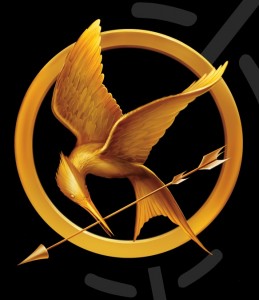
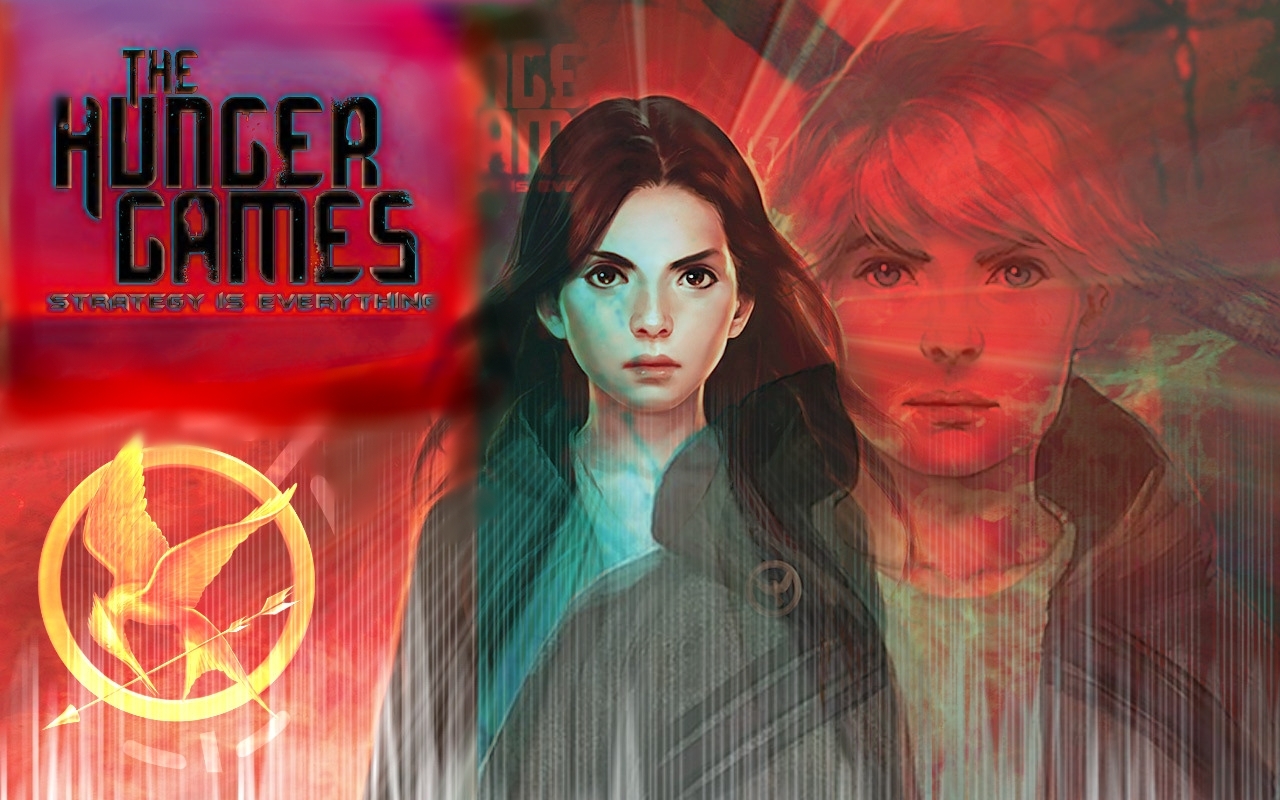
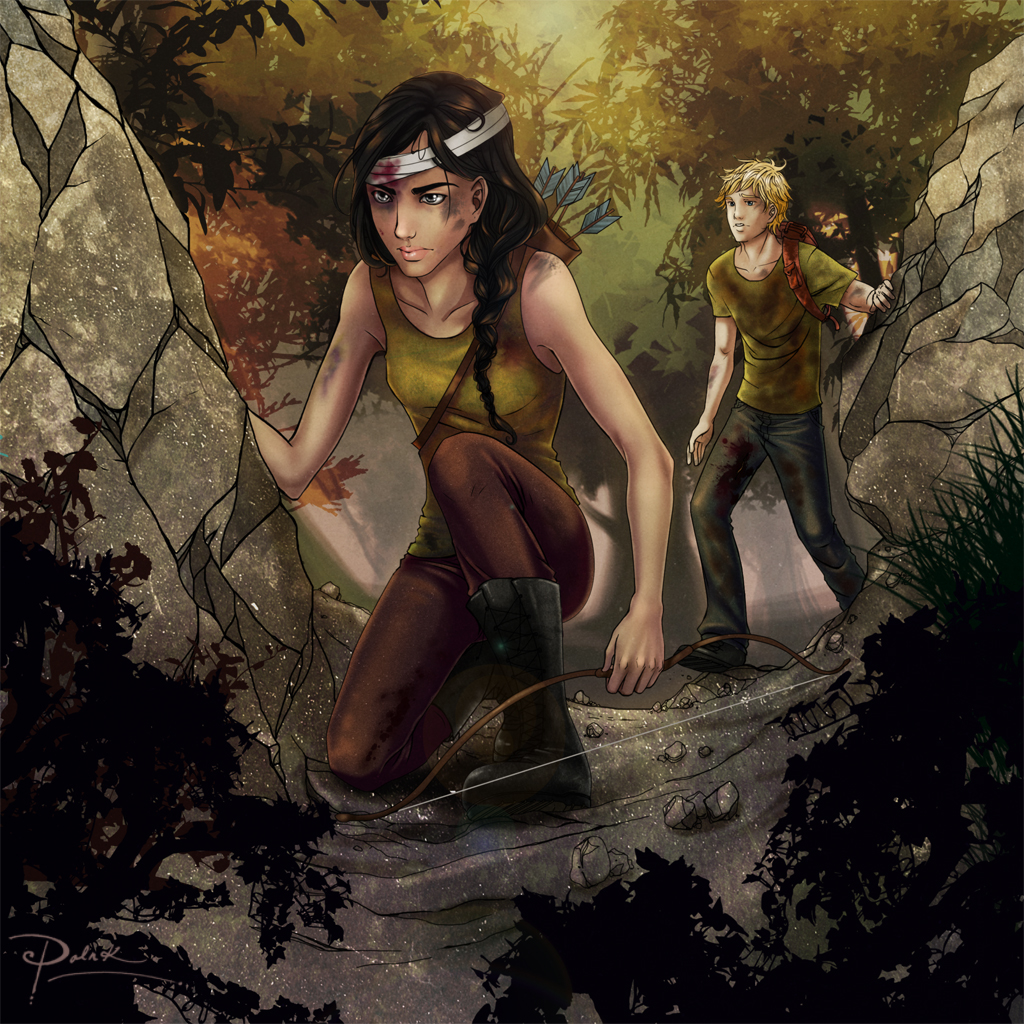


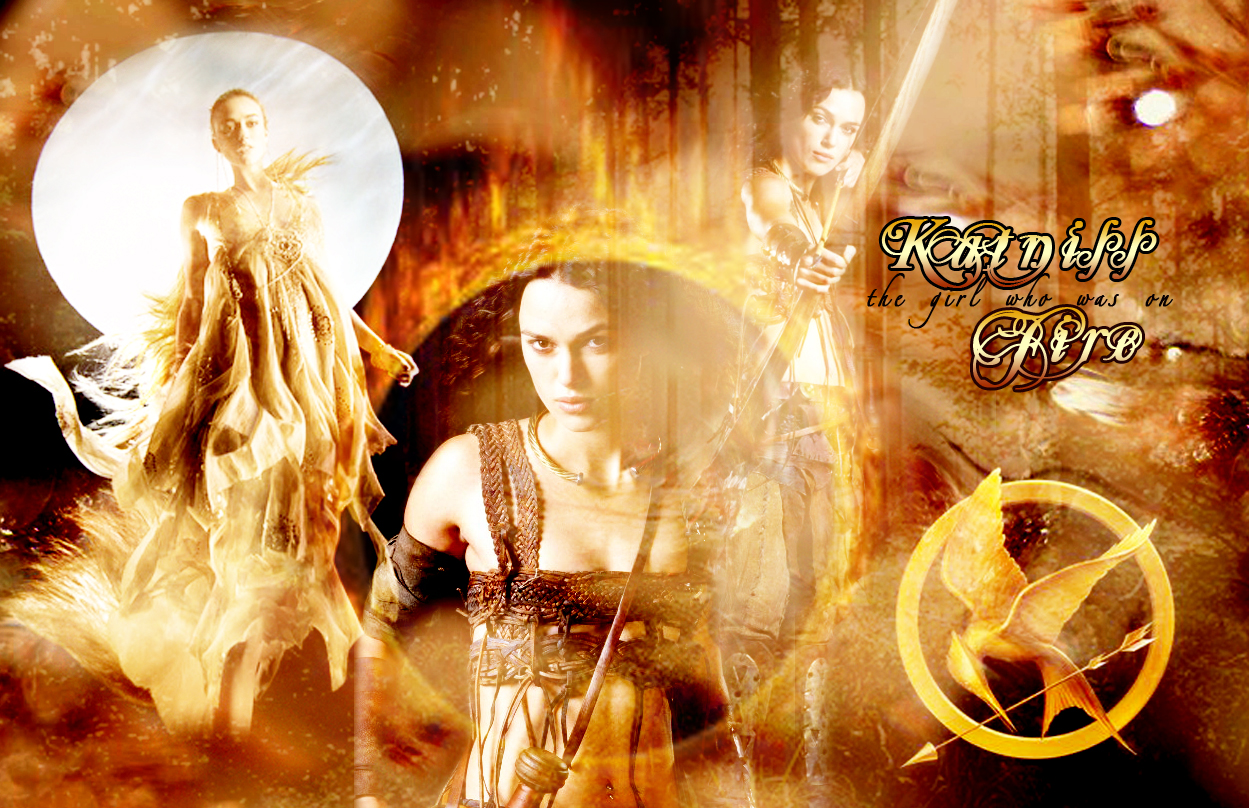
1 comment:
***Spoilers Below***
Man, some of that art is awesome.
This was a nice write up for the series as a whole, and I think you hit on most of the large issues. One thing I found myself thinking on was the extents people would go to make themselves beautiful, especially those in the Capitol. Remember Tygris? That woman was crazy. It seems like Collins was making a statement on appearance and how obsessed some people become, and as a person who could care less what I look like, I liked this commentary.
I've still not fully digested everything from the books. I'll find myself thinking on how awful Panem was. I also couldn't believe how they elected to do the Games again after everything, and I wonder if they would go through with it after Coin's death? Finally, the deceit of Gale & Beetee's weapons was simply appalling. I've been a Peeta fan from the beginning, so that just gave me one more reason to dislike Gale.
All in all, this was a fantastic series that I'm sure will be around for many years to come.
Post a Comment